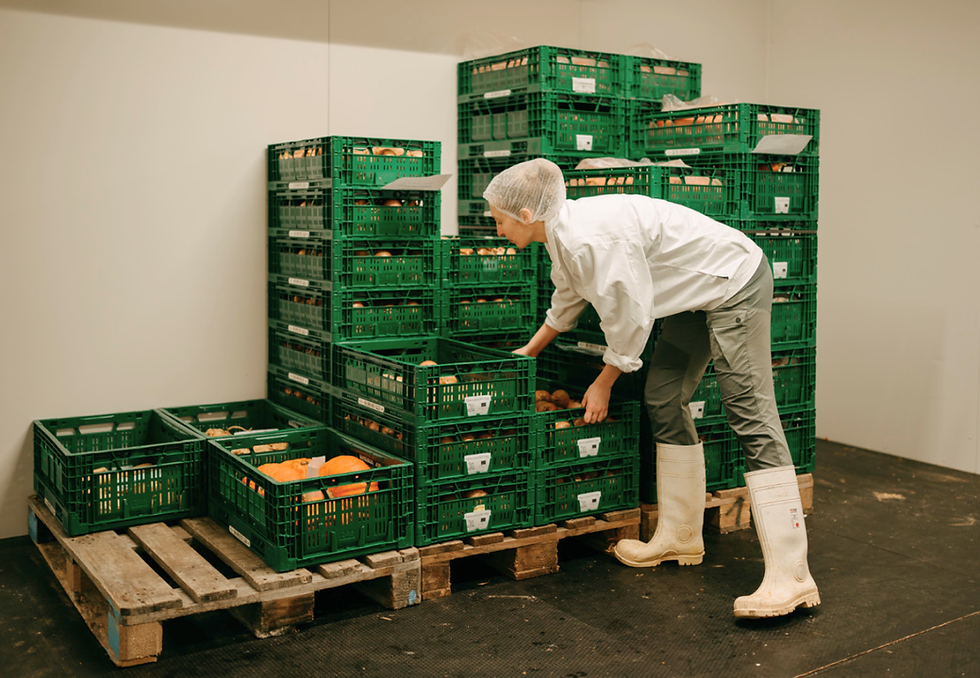The Bressoux local food supply hub, the 'missing link' in sustainable food production
- François Remy

- Nov 14, 2025
- 2 min read
The sustainable food chains in the Liège region now have a 3,000 m² logistics platform. The "short-chain hub," which the Terra Alter cooperative has been operating since mid-October, includes a vegetable workshop that processes local organic products for collective kitchens and other hospitality professionals.

Good and honest food. This societal challenge demands structural solutions. And the Bressoux "short-chain hub" is one of them, according to the authorities and stakeholders who joined forces for this exemplary project.
Schools, daycare centers, restaurants, and other operators in the Liège region can now buy their fresh produce locally and simultaneously meet the growing demand for sustainability.
The 3,000 m² logistics platform is strategically located in the city and houses a vegetable processing and storage workshop for the Terra Alter Belgique cooperative, which specializes in the preparation of ready-to-use organic and seasonal vegetables for both collective and commercial catering. The organization is looking to increase its volume to become profitable and ultimately aims for a processing capacity of up to five tons per day.
The objectives of this project, which structures sustainable food supply in urban areas, are clearly diverse, starting with shortening the supply chain by eliminating intermediaries and literally shortening transport distances. But it also aims to leverage the expertise of local producers by guaranteeing them a fair income.
As the Manger Demain unit emphasizes, the agri-food industry is one of the largest employers in the Liège region. Several large companies whose products are sold internationally are located there, including AB Inbev, LaLorraine, Galler, HesbayFrost, and Come a Casa.
The launch of this very first platform of its kind in Liège will, in theory, help to rationalize flows, reduce distribution costs and simplify ordering for professional buyers by bundling volumes.
For producers, this means a stable sales market and increased scale. For restaurant owners and kitchen managers, it guarantees a regular supply of locally processed products.
According to the Liège local media outlet Qu4tre, the nearby collective catering company TCO Service is already using vegetables from Terra Alter to produce around 1,500 meals daily. This partnership illustrates the short-chain hub's immediate operational capacity to meet needs.
According to the Walloon government's plans, two more centers will be opened in Marchienne-au-Pont and Suarlée, each with complementary specializations. In Charleroi, a 2,600 m² facility for food wholesale and raw vegetable processing will be built on the former industrial site (AMS SUD). It will be located next to the central kitchen of the Humani network (formerly ISPPC), which produces 25,000 meals daily for various communities.
In Namur, a future hub will cover at least 1,000 m². It will include food processing workshops, a storage facility, and an order preparation area for B2B customers.










